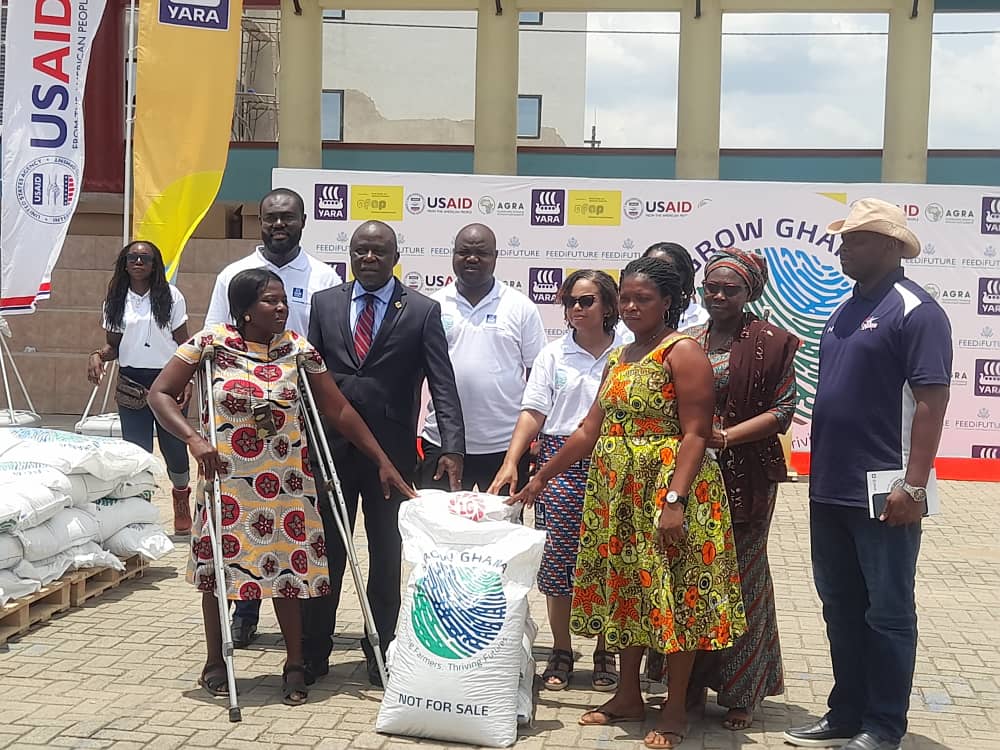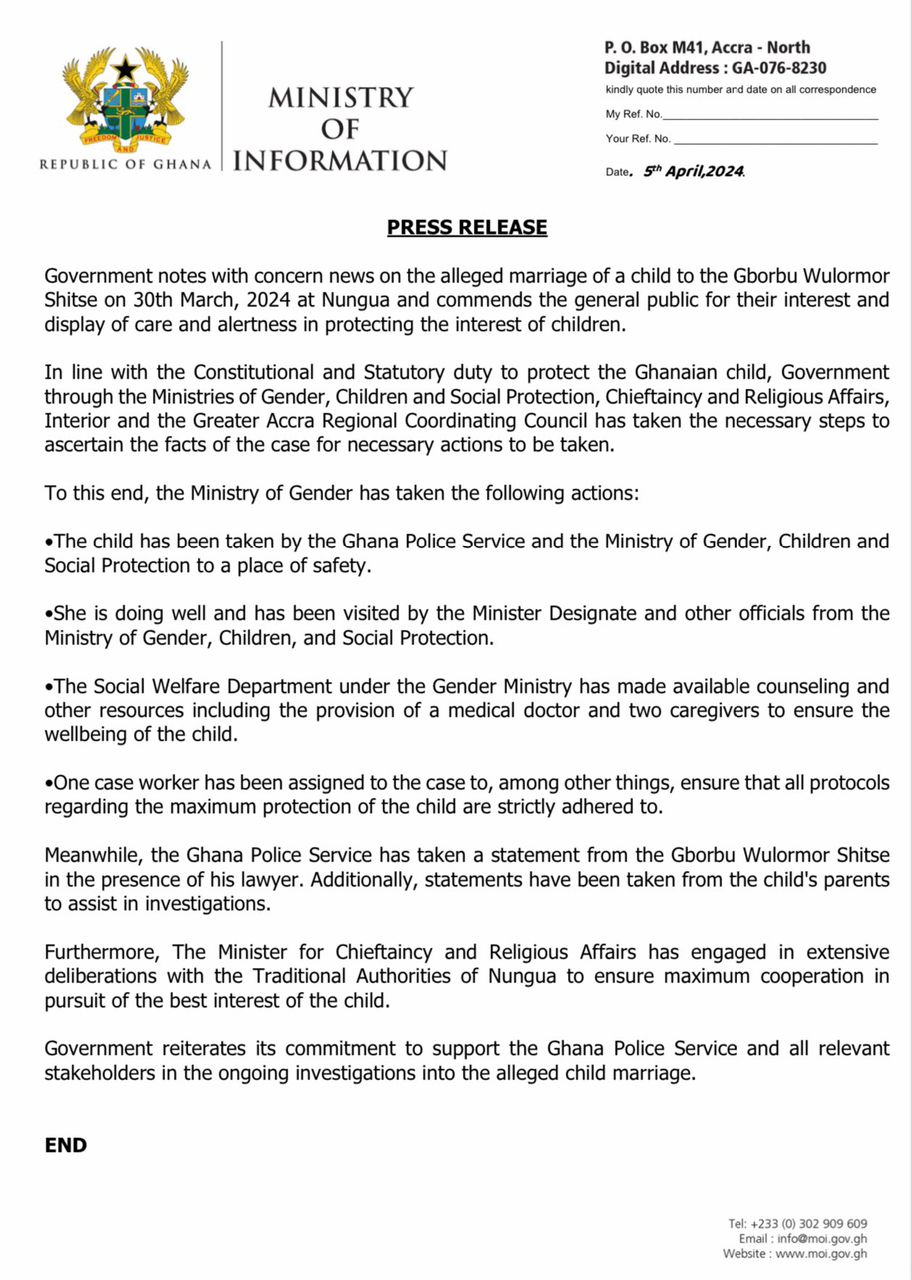
The government has reduced the retail price of fertiliser from GH¢85 to GH¢54 to boost crop production in the country, the Minister of Food and Agriculture, Dr Owusu Afriyie Akoto, has said.
He said the move was also to ensure that farmers were liquid enough to expand their operations within the agriculture value chain.
Dr Akoto who announced this at a meeting with agribusiness members of the Association of Ghana Industries (AGI) on Friday, April 7, in Accra also hinted that the government would this year import more than 300,000 metric tonnes of fertiliser to motivate farmers to increase crop yields as part of measures to actualise the ‘Planting for Food and Jobs’ programme.
The meeting was meant for the players in the agribusiness sector to lay bare the challenges faced by farmers and those in the value chain, elicit government’s support and to express their willingness to lend support for the agenda of the government to transform the ailing sector to regain its past glory.
“We intend to import the highest amount of fertiliser into the country this year after the introduction of the fertiliser subsidy programme in 2017,” Dr Akoto said.
Declining agriculture
Dr Akoto observed that the country’s agricultural sector for decades had suffered low investments, minimal technological infusion and general neglect, resulting in marginal growth and contribution to national output.
He noted for instance that from 30.4 per cent in 2006, the sector’s contribution to total economic output, measured by gross domestic product (GDP), had declined to 20.2 per cent in 2015.
The drop in the sector’s contribution to GDP can be traced to the steady reduction in its growth rates over the years.
After ending 2008 at 7.4 per cent, growth in agriculture resumed a downward trend; dropping to 5.3 per cent in 2010 before peaking at 5.7 per cent in 2013.
Growth in the sector dropped from 4.6 per cent in 2014 to 3.6 per cent in 2016, raising questions about the impact of the various interventions aimed at reviving the sector.
Poor performance, Dr Akoto mentioned, was as a result of the lack of the right investments from successive governments.
“It is not understandable that although Ghana and Ivory Coast have almost the same land area under cocoa yet Ivory Coast is producing 1.7 million metric tonnes of cocoa and Ghana is presently producing 800,000 metric tonnes of cocoa,” he said.
Reversing the trend
To help reverse the trend, the minister stated that the sector for the first time in many years had been allocated with the needed budgetary support to meet its expectations.
He said the main highlight of the 2017 budget of the ministry was the Planting for Food and Jobs programme which was designed to encourage all citizens to take up farming as a full or part-time activity.
According to him, the programme will be anchored on five pillars, namely: provision of improved seeds, supply of fertilisers, provision of dedicated extension service, marketing and e-agriculture, and monitoring.
Dr Akoto noted that the programme would increase the production of maize by 30 per cent, rice by 49 per cent, soybean by 25 per cent, and sorghum by 28 per cent from the current production levels. This would create 750,000 jobs in both direct and indirect employment.
“We are also making arrangement for all crops under the programme which include maize, rice, soya, sorghum and vegetables to be marketed to reduce post-harvest losses which had been the bane of the agricultural sector in Ghana,” he said.
Fertiliser subsidy
The leader of the delegation and Chairman of the Agribusiness Sector of the AGI, Mr Winfred Osei Wusu, said the reduction in retail price of fertiliser was welcoming news for farmers and the agriculture sector as a whole.
He, however, noted that without ready and available market for farmers to sell their produce, the reduction in fertiliser price, which is intended to boost farm produce, would obviously lead to a glut.
“We believe that the introduction of the fertiliser subsidy must work hand in hand with the availability of market to reduce post-harvest losses,” he said.
Using Contingency Fund
The Executive Director of Ghana Cassava Centre of Excellence, Mr William Agyei-Manu, said the government must take steps to use money from the contingency fund instead of the consolidated fund to support the fertiliser subsidy programme.
“A two per cent national GDP has been earmarked for emergency in the Contingency Fund, therefore assuming no emergency happens, the fund would be ideal. Therefore, utilising the contingency to support fertiliser subsidy is the best way to develop the agricultural sector,” he added.
The government has reduced the retail price of fertiliser from GH¢85 to GH¢54 to boost crop production in the country, the Minister of Food and Agriculture, Dr Owusu Afriyie Akoto, has said.
He said the move was also to ensure that farmers were liquid enough to expand their operations within the agriculture value chain.
Read Full Story


















Facebook
Twitter
Pinterest
Instagram
Google+
YouTube
LinkedIn
RSS